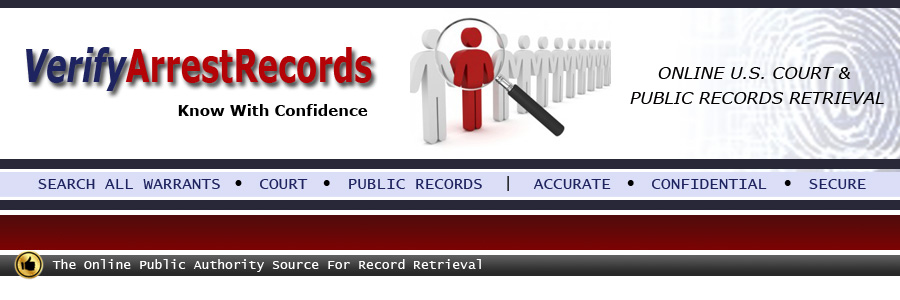

What You Need to Know About Warrants
In the United States there are many different classes of warrants each serving a different purpose. A warrant is a court-sanctioned document that authorizes law enforcement officials to take a person into custody or perform an action to uphold the law and protect citizens.
Criminal Warrants
A criminal warrant is typically used to secure evidence or apprehend a person suspected of committing a specific crime. These types of warrants must be signed by a judge or they can't be legally exercised. There has to be probable cause that a crime has been committed by the person named for a judge to issue an arrest warrant. The warrant must specify in detail the person to be seized to ensure a wrong arrest is not made.
You may also get a criminal warrant if you fail to appear in court for a trial after a citation has been issued in your name. Or if you've been before a judge, but fail to appear for your next scheduled court appearance. Regardless, warrants don’t expire until the matter is resolved and closed by the court system.
Search Warrants
Search warrants are used widely by law enforcement to search a specific person or place within a period of time. In order for a judge to consider issuing a search warrant, law enforcement must show probable cause and a valid reason to conduct a search on a person or property. Search warrants must be used within the time frame stated or it's illegal for a search to take place without first obtaining another search warrant. However, it's important to note that if the police witness someone's life being threatened or they feel a situation is dangerous to the public, they have the legal right to search a private residence or person without a search warrant.
Sneak and Peek Warrant
A sneak and peek warrant is similar to a search warrant in that law enforcement are searching for evidence or clues in relation to a criminal case without the need for the occupants consent or knowledge. Only, with a sneak and peek warrant, their intent is to simply gather evidence in order to return at a later date with a traditional search warrant. Police and law enforcement won't have the authority to physically disturb or remove evidence during this type of search. They are there solely to collect evidence by taking pictures and documenting what's questionable in the property. Sneak and peek warrants work well in illegal drug investigations so investigative teams can search the premises for chemical and drug paraphernalia.
No Knock Warrant
A no knock warrant gives law enforcement officers the authority to enter a premise without announcing their presence first. The reason this type of warrant may be used as opposed to a traditional search warrant is if it's suspected that critical evidence might be destroyed in advance of a known search or for law enforcement officials to minimize their threat by entering unannounced. A no knock warrant will be issued by a judge based on the information that these such circumstances are present.
Civil Warrants
A civil warrant is an order signed by a judge that requires an individual to appear in court for a civil case at a specific location and time. A civil warrant can be used for a variety of purposes in civil lawsuits, such as seeking monetary value or recovering personal property. Civil warrants are issued for a specific jurisdiction and are commonly used in small claims court cases where civil suits are involved.
Since civil warrants aren't consistently enforced, if an individual fails to appear for a court date, he or she automatically loses the case to the other party. The civil case, along with the civil warrant, is then closed. However, a judge has the right to hold an individual in contempt of court for failure to appear.
Child Support Warrants
If a non-custodial parent fails to pay child support for a minor, the spouse or custodial parent has a right to file a complaint against them to try and collect the obligation. If the party that owes child support does not show up for the court date, the judge can issue an arrest warrant for that person. The consequences of not paying child support can result in the loss or suspension of the person's license and possibly prison time. A child support warrant will appear on a background report as a federal offense and will show up on your credit report as a debt.
Citation Warrants
Traffic citations are typically issued for violations such as speeding, not using turn signals, failure to yield right-of-way, making a wrong turn, parking violations, etc. Basically traffic citations are given when a person commits a prohibited act while operating a motor vehicle. Traffic violators are required to sign traffic citations at the time they are issued. Signing a citation merely acknowledges receipt and the duty to appear in court. It's not an admission of guilt.
Traffic violations often result in increased automobile insurance rates and can possibly effect other driving privileges. Failure to pay traffic fines or appear in court in response to a traffic citation can result in a warrant for your arrest.
In the United States there are many different classes of warrants each serving a different purpose. A warrant is a court-sanctioned document that authorizes law enforcement officials to take a person into custody or perform an action to uphold the law and protect citizens.
Criminal Warrants
A criminal warrant is typically used to secure evidence or apprehend a person suspected of committing a specific crime. These types of warrants must be signed by a judge or they can't be legally exercised. There has to be probable cause that a crime has been committed by the person named for a judge to issue an arrest warrant. The warrant must specify in detail the person to be seized to ensure a wrong arrest is not made.
You may also get a criminal warrant if you fail to appear in court for a trial after a citation has been issued in your name. Or if you've been before a judge, but fail to appear for your next scheduled court appearance. Regardless, warrants don’t expire until the matter is resolved and closed by the court system.
Search Warrants
Search warrants are used widely by law enforcement to search a specific person or place within a period of time. In order for a judge to consider issuing a search warrant, law enforcement must show probable cause and a valid reason to conduct a search on a person or property. Search warrants must be used within the time frame stated or it's illegal for a search to take place without first obtaining another search warrant. However, it's important to note that if the police witness someone's life being threatened or they feel a situation is dangerous to the public, they have the legal right to search a private residence or person without a search warrant.
Sneak and Peek Warrant
A sneak and peek warrant is similar to a search warrant in that law enforcement are searching for evidence or clues in relation to a criminal case without the need for the occupants consent or knowledge. Only, with a sneak and peek warrant, their intent is to simply gather evidence in order to return at a later date with a traditional search warrant. Police and law enforcement won't have the authority to physically disturb or remove evidence during this type of search. They are there solely to collect evidence by taking pictures and documenting what's questionable in the property. Sneak and peek warrants work well in illegal drug investigations so investigative teams can search the premises for chemical and drug paraphernalia.
No Knock Warrant
A no knock warrant gives law enforcement officers the authority to enter a premise without announcing their presence first. The reason this type of warrant may be used as opposed to a traditional search warrant is if it's suspected that critical evidence might be destroyed in advance of a known search or for law enforcement officials to minimize their threat by entering unannounced. A no knock warrant will be issued by a judge based on the information that these such circumstances are present.
Civil Warrants
A civil warrant is an order signed by a judge that requires an individual to appear in court for a civil case at a specific location and time. A civil warrant can be used for a variety of purposes in civil lawsuits, such as seeking monetary value or recovering personal property. Civil warrants are issued for a specific jurisdiction and are commonly used in small claims court cases where civil suits are involved.
Since civil warrants aren't consistently enforced, if an individual fails to appear for a court date, he or she automatically loses the case to the other party. The civil case, along with the civil warrant, is then closed. However, a judge has the right to hold an individual in contempt of court for failure to appear.
Child Support Warrants
If a non-custodial parent fails to pay child support for a minor, the spouse or custodial parent has a right to file a complaint against them to try and collect the obligation. If the party that owes child support does not show up for the court date, the judge can issue an arrest warrant for that person. The consequences of not paying child support can result in the loss or suspension of the person's license and possibly prison time. A child support warrant will appear on a background report as a federal offense and will show up on your credit report as a debt.
Citation Warrants
Traffic citations are typically issued for violations such as speeding, not using turn signals, failure to yield right-of-way, making a wrong turn, parking violations, etc. Basically traffic citations are given when a person commits a prohibited act while operating a motor vehicle. Traffic violators are required to sign traffic citations at the time they are issued. Signing a citation merely acknowledges receipt and the duty to appear in court. It's not an admission of guilt.
Traffic violations often result in increased automobile insurance rates and can possibly effect other driving privileges. Failure to pay traffic fines or appear in court in response to a traffic citation can result in a warrant for your arrest.


Are The Police Allowed To Search My Car Without A Search Warrant?
In certain circumstances the answer is yes. If you've been arrested then the police can legally search you and the area of your immediate control where they have apprehended you at the time, whether that be your car or a private residence.
In certain circumstances the answer is yes. If you've been arrested then the police can legally search you and the area of your immediate control where they have apprehended you at the time, whether that be your car or a private residence.
The Miaranda Rights

Sneak and Peak
No Knock
Bench Warrants
Outstanding Warrants
Civil Warrants
Child Support Warrants
Citations
No Knock
Bench Warrants
Outstanding Warrants
Civil Warrants
Child Support Warrants
Citations
Types of Warrants
ęCopyright VerifyArrestRecords.org_LLC. All Rights Reserved. VerifyArrestRecords.org is not affiliated in anyway with any Federal or State government agencies. All trademarks on this website, whether registered or not, are the property of their respective owners. Please do your own due diligence to determine if the content is right for your individual purposes. The publisher, vendors and advertisers of this site are not liable for any damages or losses associated with its content or the information posted by the publisher, advertisers and vendors. If you have any questions related to this website, please send an email to support@verifyrecords.com and we will reply within 24 hours. Thank you for visiting www.verifyarrestrecords.org.
DISCLAIMER: This report is not legal advice. You need to do your own due diligence to determine if the content is right for your Individual purposes. The publisher of this report is not liable for any damages or losses associated with the content in this report.
DISCLAIMER: This report is not legal advice. You need to do your own due diligence to determine if the content is right for your Individual purposes. The publisher of this report is not liable for any damages or losses associated with the content in this report.